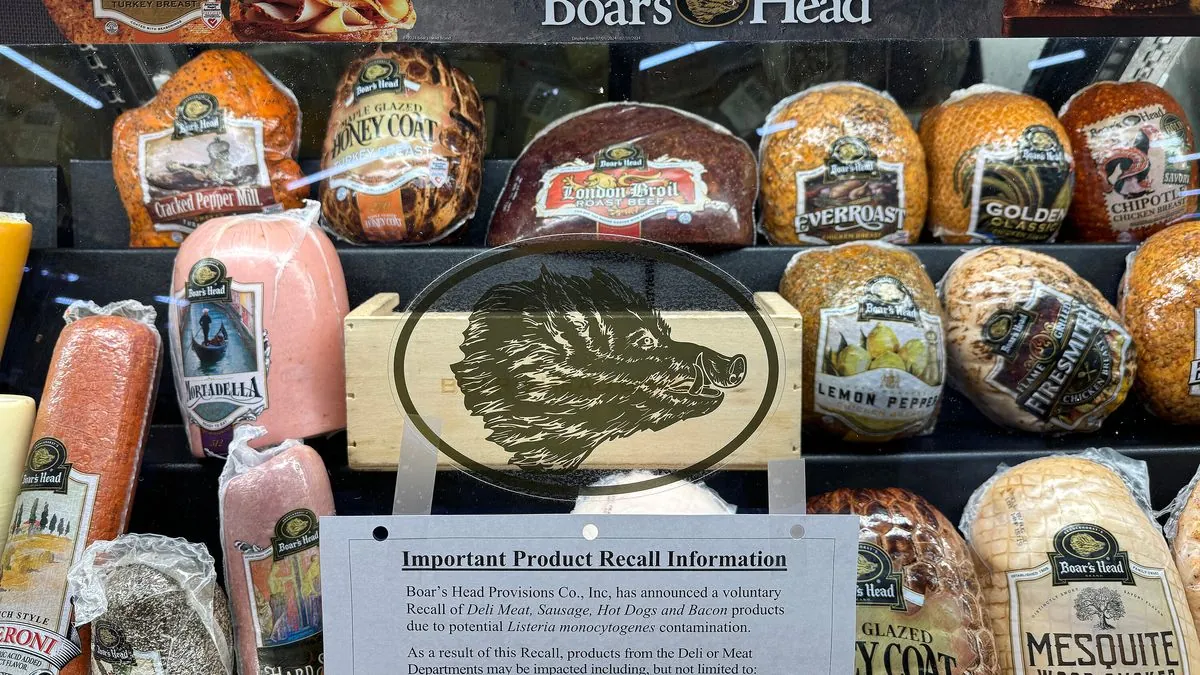Deadly Listeria Outbreak Linked to Boar's Head Plant with Known Violations
USDA reports reveal severe food safety issues at a Boar's Head facility in Virginia, leading to a fatal listeria outbreak. Experts criticize the delayed response to repeated violations.

A Boar's Head processing plant in Virginia has been linked to a deadly listeria outbreak, despite previous warnings from inspectors about significant food safety concerns. The U.S. Department of Agriculture (USDA) released inspection reports detailing numerous violations at the facility, raising questions about the effectiveness of food safety oversight.
According to the USDA documents, inspectors identified "major deficiencies" at the Jarratt, Virginia plant as early as January 2022. These issues included rusted equipment, condensation dripping onto floors, and green mold on walls. Despite these findings, the facility continued to operate.
Between September 27 and October 4, 2022, inspectors documented additional violations, such as food residue in the liverwurst room, live beetles in a hallway, and substantial product buildup on equipment. The reports also noted "dirt, screws and trash" on production area floors.

Listeria monocytogenes, the bacterium responsible for listeriosis, can survive and grow at refrigeration temperatures, making it particularly dangerous in ready-to-eat foods like deli meats. The incubation period for listeriosis can range from 3 to 70 days, with an average of 3 weeks, complicating outbreak investigations.
The outbreak linked to the Boar's Head plant has resulted in nine deaths and dozens of hospitalizations, making it the largest listeriosis outbreak in the United States since 2011. In response, the company has recalled over 70 products, including ham, bologna, and bacon, produced between May 10 and July 29, 2024.
Food safety experts have criticized the handling of the situation. Neal Fortin, director of the Institute for Food Laws & Regulations at Michigan State University, pointed out that conditions like standing water and dripping pipes are known "listeria breeding grounds."
The USDA's Food Safety and Inspection Service (FSIS), established in 1981, maintains a "zero tolerance" policy for Listeria monocytogenes in ready-to-eat foods. However, the agency's response to the repeated violations at the Boar's Head plant has come under scrutiny.
"It's honestly shocking the condition of the plant. I cannot understand why they didn't take action."
The USDA has stated that it is investigating the matter and conducting a review to determine the factors that led to the outbreak. The agency is also examining Boar's Head plants across the country.
This incident highlights the ongoing challenges in food safety regulation and enforcement. The USDA collaborates with state agencies to conduct inspections in more than half of U.S. states, a system that some experts argue may contribute to inconsistencies in oversight.
As the investigation continues, consumers are advised to check their refrigerators for potentially contaminated Boar's Head products, some of which may have sell-by dates extending into October 2024. Individuals at high risk for listeriosis, including older adults, pregnant people, and those with weakened immune systems, should be particularly cautious.
The Boar's Head outbreak serves as a stark reminder of the importance of rigorous food safety practices and the potential consequences when these standards are not met. As the food industry and regulatory agencies work to address these issues, consumers are encouraged to stay informed about food safety recalls and practice proper food handling at home.


































